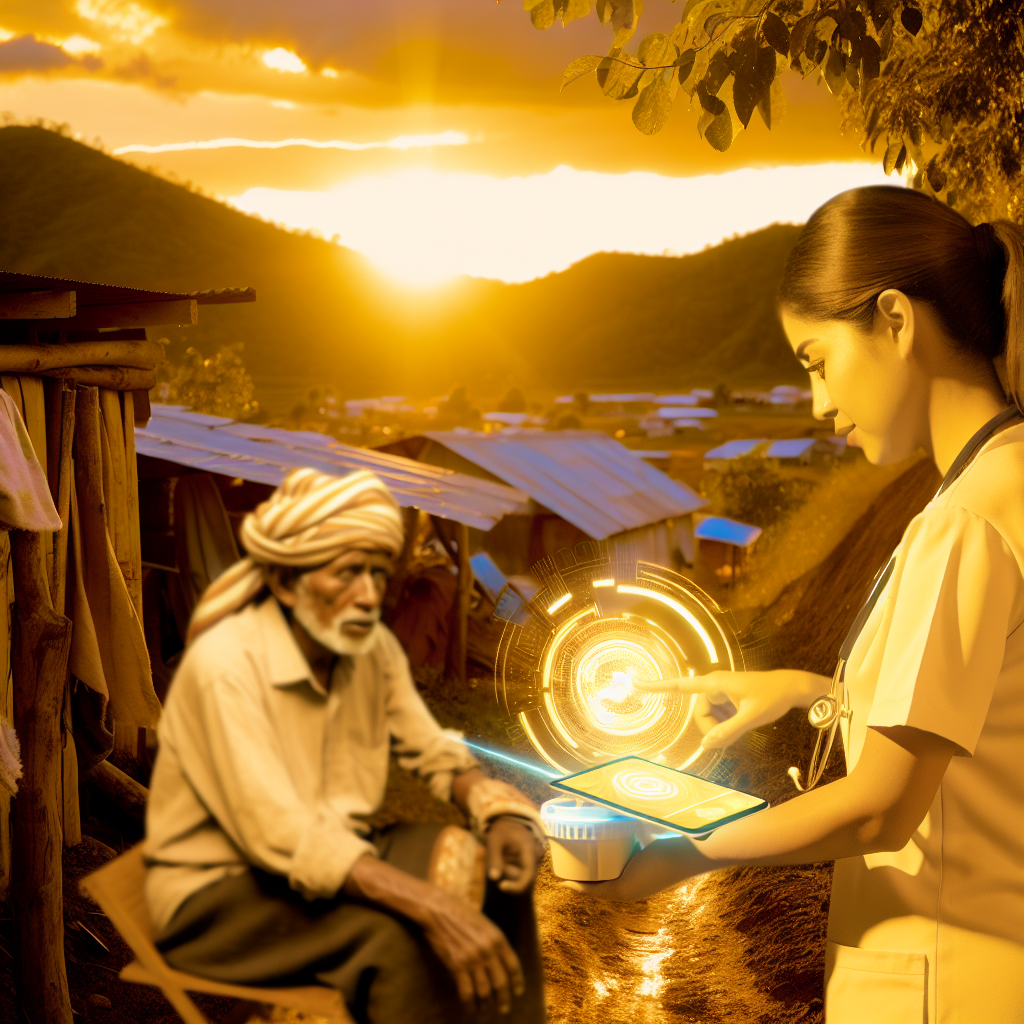
Revolutionizing Healthcare Access in Remote and Disaster-Isolated Communities Powered by AI
Access to essential medical services remains a pressing issue for millions around the globe, particularly in remote and disaster-isolated communities. Traditional systems buckle under the pressure of physical isolation, disrupted infrastructure, and limited healthcare personnel. Fortunately, Artificial Intelligence (AI) is stepping in as a game-changing tool to bridge these healthcare disparities. From diagnostics to logistics, AI is empowering healthcare systems to reach the unreached and ensure no one is left behind, even in the face of profound adversity.
What Prevents Healthcare Access in Remote and Isolated Regions?
The challenges faced in delivering healthcare to remote or disaster-prone regions are multifaceted:
- Geographical Barriers: Mountains, deserts, and vast distances limit travel capabilities.
- Infrastructure Destruction: Disasters often cripple hospitals, roads, and communication networks.
- Shortage of Skilled Professionals: Remote communities frequently lack doctors and nurses.
- Limited Diagnostic Equipment: Laboratories and imaging facilities are scarce or nonexistent.
AI-powered tools are turning these challenges into opportunities by using data, automation, and machine learning to optimize healthcare delivery even in the most challenging conditions.
AI in Remote Healthcare Access: A Lifeline, Not a Luxury
The integration of AI ensures that patients in even the most inaccessible locations receive timely, accurate, and effective healthcare services. By analyzing data and streamlining communication, AI makes health systems resilient and responsive during emergencies.
1. Remote Diagnostics through AI-Enhanced Telemedicine
Telemedicine, driven by AI, has revolutionized patient-doctor interaction. AI algorithms now assist healthcare professionals by:
- Analyzing symptoms through Natural Language Processing (NLP)
- Interpreting medical images using machine learning models
- Offering predictive diagnostic support based on patient data
Startups and platforms are deploying AI solutions that enable community health workers to consult with specialists in real-time using satellite-connected devices. This helps create accurate diagnoses in minutes, even when miles away from a hospital.
2. Drones & AI for Medical Supply Delivery
When disasters block roads or when travel is impossible, AI-powered drones step in. Using geospatial analytics and real-time data, these drones can:
- Deliver vaccines, blood, and essential drugs directly to health posts
- Monitor and optimize flight paths based on AI-generated logistics plans
- Support timely delivery during emergencies using weather and terrain analysis
Companies like Zipline have already demonstrated the efficiency of drones in delivering life-saving supplies across African nations.
3. Predictive Analytics for Outbreak Responses
AI’s ability to identify patterns in vast data sets allows for early warnings and containment of disease outbreaks in isolated communities. AI systems can:
- Predict high-risk zones based on climate, mobility, and past outbreak data
- Assist in the strategic deployment of medical teams
- Estimate future healthcare needs based on demographic trends
With faster response times, governments and NGOs can mitigate suffering and reduce mortality in calamity-stricken zones.
4. Natural Language Processing in Multilingual Contexts
Remote regions are often linguistically diverse. AI-driven voice assistants, powered by NLP, help translate complex medical instructions into local dialects. This improves health literacy and medication adherence significantly.
Real-World Examples of AI Empowering Isolated Healthcare
- India: The National Health Authority, in collaboration with tech firms, is employing AI tools to provide consultations in rural areas through mobile platforms using satellite connections.
- Haiti & Philippines: AI systems have been instrumental in coordinating disaster-relief missions following earthquakes and typhoons.
- Sub-Saharan Africa: AI-enabled telemedicine and drone delivery systems have significantly reduced maternal mortality rates in hard-to-reach villages.
Challenges and Solutions in Implementing AI in Remote Healthcare
Despite the immense promise of AI, certain challenges must be addressed to optimize its impact:
- Connectivity Barriers: Dependence on stable internet requires investment in mobile satellite solutions.
- Data Privacy: Ensuring that patient information remains confidential and compliant with global standards like GDPR and HIPAA.
- Local Training: Equipping local health workers with the skills to operate AI tools sustainably.
Organizations like WHO and UNICEF are working closely with governments and tech developers to create scalable, ethical, and community-driven AI applications tailored for vulnerable populations.
Looking Ahead: A Connected Future, Powered by Artificial Intelligence
From virtual clinics to AI-powered logistics, the broad-scale implementation of AI in remote healthcare is not just a futuristic ideal—it’s rapidly becoming a reality. With continued collaboration between the public and private sectors, the promise of equitable healthcare across all terrains grows stronger each day.
For those interested in learning more about how AI shapes our technological future across sectors, explore the in-depth resources available on aidigestfuture.com.
SEO Meta Description:
Discover how AI is transforming healthcare access in remote and disaster-isolated communities. Explore telemedicine, drones, predictive analytics and real-world use cases. Learn how technology bridges health equity gaps now and in the future.
Suggested URL:
https://www.aidigestfuture.com/healthcare-access-remote-disaster-isolated-communities-powered-by-ai
Relevant Internal Links from aidigestfuture.com:
- AI in Disaster Management: Reshaping Emergency Response
- Ethical Considerations of AI in Healthcare
- The Future of Telehealth and AI Integration
External Resources:
- World Health Organization – Spotlight on Artificial Intelligence
- Nature Digital Medicine – Role of AI in Healthcare Delivery
- UNICEF Innovation – AI and Remote Health Access
- HealthTech Magazine – How AI Addresses Healthcare Accessibility
- JAMA – AI and Remote Health Monitoring
- IBM – Transforming Rural Healthcare with AI
- Harvard Business Review – AI in Low-Resource Healthcare Settings
- World Economic Forum – Future of Remote AI Healthcare
- MDPI Open Access – AI in Rural Health: A Systematic Review
- UN.org – Climate Resilience, AI and Natural Disasters
Healthcare access in remote and disaster-isolated communities powered by AI marks a critical shift in global health equity. As AI continues to evolve, so does our ability to build a more inclusive, resilient, and responsive healthcare system that truly spans the furthest corners of the globe.
